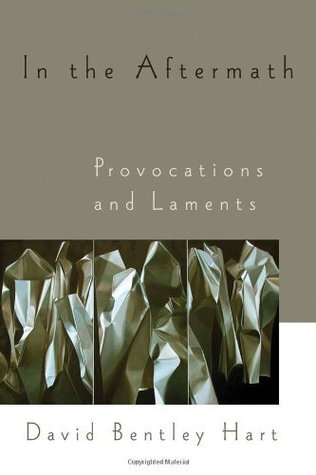More on this book
Kindle Notes & Highlights
Read between
March 27 - May 2, 2021
A culture - a civilization - is only as great as the religious ideas that animate it; the magnitude of a people's cultural achievements is determined by the height of its spiritual aspirations.
Either the material order is the whole of being, wherein all transcendence is an illusion, or it is the phenomenal surface - mysterious, beautiful, terrible, harsh, and haunting - of a world of living spirits.
It is a curious condition of late Western modernity that, for so many of us, the highest ideal of the good society is simply democracy as such, and then within democracy varying alloys of capitalism, the welfare state, regionalism, federalism, individualism, and so on. And what we habitually understand democratic liberty to be - what we take, that is, as our most exalted model of freedom - is merely the unobstructed power of choice.
Democracy is not an intrinsic good, after all. Where the moral formation of a people is deficient, the general will malign, or historical circumstance unpropitious, it is quite unambiguously wicked in its results.
we exist only because there is One who has called us from nothingness to be what he desires us to be, not simply what we would like to make ourselves, and that we shall truly be free - and know what freedom is - only when we have no choices left.
the constitution is not in fact a legal document; it is a philosophical and political charter, and law is only one (and, in isolation, a deficient) approach to it. Constitutional jurisprudence, moreover, is essentially a hermeneutical tradition; it is not the inexorable unfolding of irrefragable conclusions from unambiguous principles, but a history of willful and often arbitrary interpretation, and as such primarily reflects cultural decisions made well before any legal deliberation has begun.
It is good to be reminded from time to time - good for Christians, that is - that their relations with the liberal democratic order can be cordial to a degree, but are at best provisional and fleeting, and can never constitute a firm alliance; that here they have no continuing city; that they belong to a kingdom not of this world; and that, while they are bound to love their country, they are forbidden to regard it as their true home.
In the terms of Aristotle's fourfold scheme of causality, science as we understand it now - Baconian science, if one likes - concerns itself solely with efficient and material causes, while leaving the questions of formal and final causes unaddressed.
Neither intuitions of general indeterminacy nor discoveries of special complexity authorize us to pronounce any final verdict on the whole of being. This is as true in the case of Dawkins's clodhopping metaphysical materialism as in that of the disastrously misguided Intelligent Design movement (that odd occult discipline devoted to the ingenious demiurge who invented syphilis for us).


